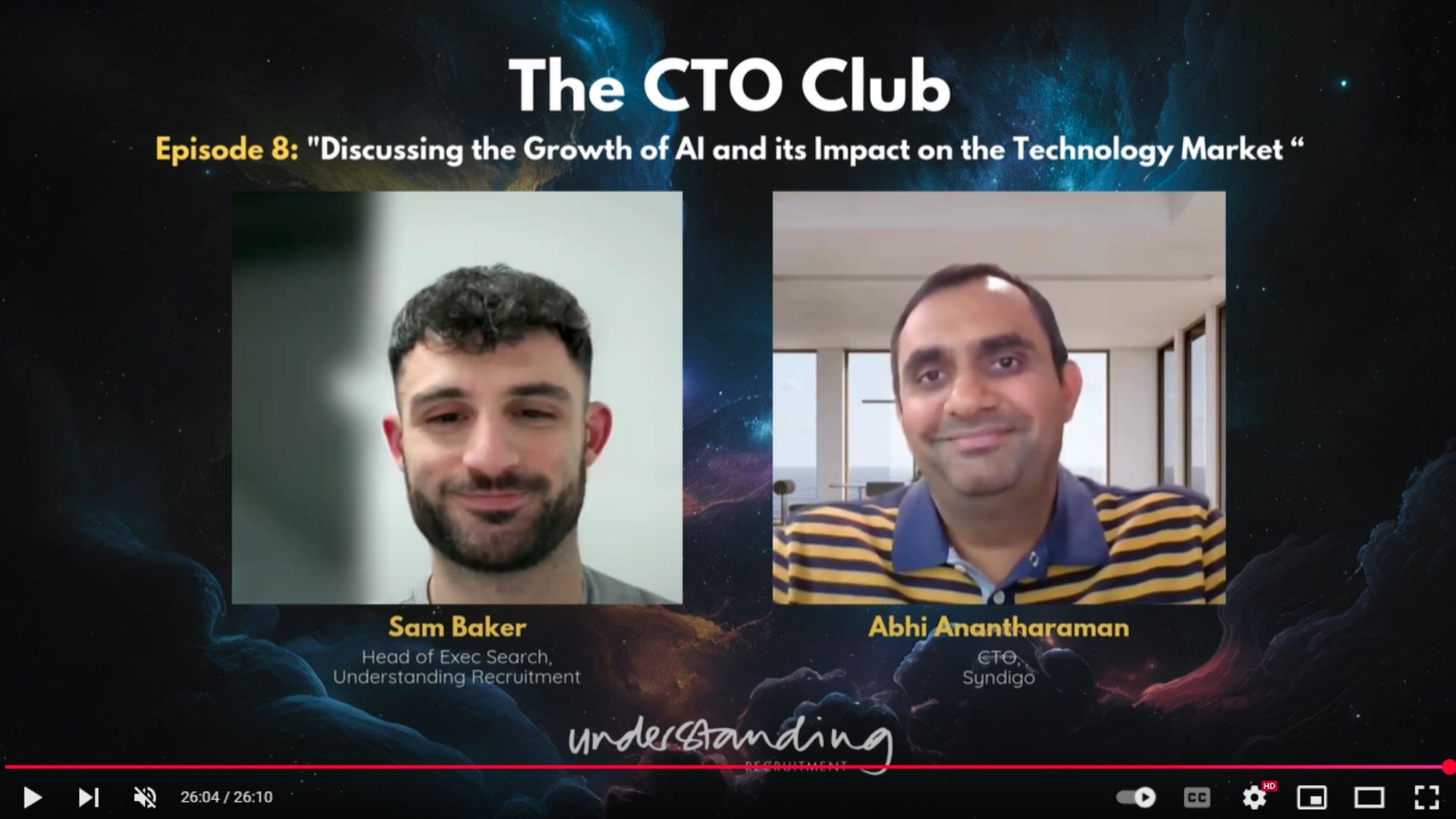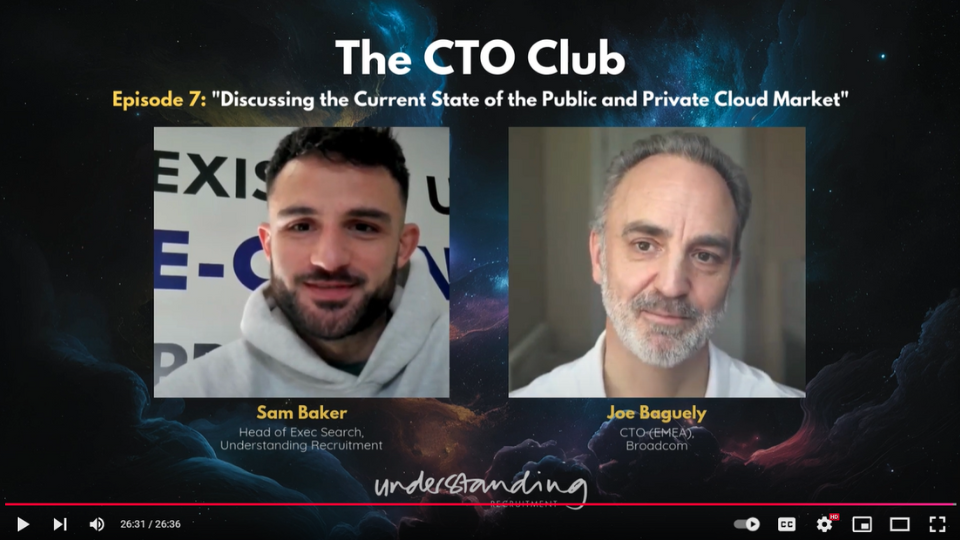Data Science Leadership Bytes: In Conversation With Chris Fenton
5th November, 2024 10 min
In this latest edition of our Data Science Leadership Bytes series, we sit down with Chris Fenton, a visionary data leader with nearly a decade at Browne Jacobson. From driving digital transformation to pioneering AI initiatives, Chris shares their journey and the evolving role of data in the legal sector. They discuss the importance of creating a culture rooted in diversity, inclusion, and collaboration, along with advice for aspiring data leaders and companies striving to attract diverse talent. This conversation is packed with insights for anyone interested in leveraging data for impact and innovation.
You’ve been with Brown Jacobson for coming up to 10 years’ now – Congratulations! You must have seen a lot of changes in the industry but to take it right back, what was it that initially attracted you to a career in Data?
When I first started working at Pinewood, they were collecting data about vehicle servicing and then repackaging that to make new products for clients. That’s when I first started to see the value of data and I found it really interesting. I later moved to Kantar, a market research company well known for its use of data. What really fascinated me was how information could be applied in so many different ways, and that’s where my interest began and evolved from.
Were there any specific projects that stand out over your career to date?
I’ve led big projects around digital transformation, both at Kantar and Browne Jacobson. They involved moving from traditional methods, such as pen-and-paper processes or using email for automation, to developing platforms that fully digitised these activities. This shift gave us a deeper understanding of how people use their data and the value that can be gained from the back of that.
At Kantar, I was part of a project where we digitised the entire market research survey process. As a result, we were able to do far more and obtain information much faster. What really stood out was the speed at which we could now turn things around – tasks that previously took weeks were completed in days. We really started to get a lot of value for clients at that stage.
With all the advancements in AI, what’s exciting you most in the legal space?
I think lawyers have become more comfortable with risk when it comes to technology. When I joined Browne Jacobson 10 years ago, there was still a cautious approach towards using technology to add value. That mindset has shifted, and I think COVID played a role in driving that change. As a result, we’ve been able to unlock new opportunities for clients, particularly in how we use data and artificial intelligence (AI) to generate insights. We’re actively exploring large language models (LLMs) and AI, and there are some really exciting opportunities in the legal sector for improving service delivery.
Do you envisage challenges when building a business case for new data initiatives, especially with emerging technologies?
I’ve been working with data for quite a long time, and the same principles usually apply when introducing new technologies: building a strong business case, getting buy-in, demonstrating value early, and understanding your stakeholders and their concerns.
Last year, we developed and launched an in-house AI tool. Alongside this, we organised a firmwide AI awareness month, which hugely boosted engagement with the tool across the business. We covered topics such as what LLMs are particularly good at, where they have limitations, and how they can be used in everyday tasks. This led to a noticeable increase in interest and understanding of AI, data, and technology, ensuring that everyone now has a solid foundation in these tools.
I think we’ll continue hosting AI awareness drop-in sessions, as they help us stay on top of changes and keep the business informed about any updates.
In terms of advice, what words of wisdom would you pass on to someone navigating the earlier stages of their career?
Today, what I think is valued the most for data leaders is the ability to be a business partner. It’s not just about having technical skills–it’s about understanding your business and your customers. Being commercially minded is really important, and I think that’s something that often gets overlooked. I’ve learned this over the years, and it’s been key to getting me where I am today. If I were starting out again, I’d really focus on commerciality, adding value, and being a business partner to the organisation. Always ask yourself, ’What’s the added value?’
How did you upskill yourself on this?
For me, a lot of it was trial and error. When I joined Browne Jacobson, there wasn’t really a data team in place. Now, we have a team of over 20 people working on projects that are making a real impact and gaining recognition across the firm. But in the early days, when I was trying to build a business case, there were certainly a few failures that I had to learn from.
For example, when asking the business for funding, it’s important to clearly explain the value the investment will bring. Whether it’s a financial return in pounds and pence, reputational benefits, or other advantages, it needs to be presented in commercial terms. The first few business cases I wrote didn’t get the buy-in I hoped for, so I went back, reconsidered, and tried different approaches.
I’ve also had some great mentors along the way. Browne Jacobson works with the Whitehall Industry Group (WIG), who run a mentoring programme. I first met my current mentor in 2021 and I still meet with them regularly. I now mentor two people myself. Having a mentor has been really helpful, but mentoring others has also pushed me to hold myself accountable and develop skills outside of the firm.
For people who don’t have access to organisations like WIG, how should they go about getting this kind of guidance?
I think most industries have professional networks, and they’re always a good place to start. One of the people I mentor works in the energy sector, and he’s found some great mentors through those networks.
Beyond that, user groups and meetups are really valuable. In the past, I helped run a scrum meetup, but there are plenty of tech and data groups, especially in larger cities. Spending an evening attending one is a small investment, but you can get a lot out of building your own network. Often, people in these groups are more than happy to offer their help for free, and you’ll meet others who’ve faced the same challenges.
I’ve found some really good groups across Nottingham, Birmingham, and Leicester, and I’ve learnt a lot from them.
What would you say are the most important characteristics of a successful leader?
Being a successful leader is multifaceted, but it really comes down to understanding people. You have to know their strengths and weaknesses. It’s important to take a coaching approach, not just giving answers but asking the right questions to help them find their own solutions.
Beyond that, one of the biggest things is trust. You need to trust your team. I try to give everyone responsibility for something because if you want people to grow, they need the chance to do so. For those who are early in their careers, it’s about giving them tasks that help them develop, while still being within their comfort zone to some extent. Trust them to do a good job, and then focus on feedback. Let them make mistakes and be there to offer support and guidance when things don’t go as planned.
It sounds like you do it really well, so how do you create an open culture where things like this are encouraged?
Culture is something that’s really important to me. I talk to the team about culture a lot. Collaboration, customer service and transparency are the three things I’ll talk about again and again. I make sure that’s on the agenda across the board. I also focus on collective ownership–how we work together as a team to take responsibility for what we do and how we deliver. When people feel a sense of ownership, they feel safer, and when people feel safe, they’re more likely to give feedback and collaborate on solving problems.
What advice would you give to businesses who are struggling to attract diverse talent?
I really believe that inclusivity has to start at the top. Senior leadership teams need to have meaningful conversations about how the whole organisation approaches diversity and inclusion. I’m lucky because Browne Jacobson is a really positive place to work. I’m involved in networks like Pride, gender, and neurodiversity, which gives me the opportunity to make an impact on the business – and that makes my job easier. Outside of work, I’m part of the Alliance network. Their aim is to help people across the Midlands set up and maintain their own Pride networks.
I attended a talk by Women in Data where they shared statistics on women in the industry. Off the back of that, we updated our job descriptions to focus more on responsibilities and took out a lot of the technical jargon – I’d definitely recommend this as it encourages more people to apply. I’m fortunate to have a diverse team, but we still have a way to go.
If you want to attract more diverse candidates, it’s really important that, during interviews, they meet team members from different backgrounds. Having that representation in the interview process makes a big difference because candidates are more likely to engage when they see someone they can relate to.
At Browne Jacobson, we run workshops on diversity. I’ve also led sessions with my team on why diversity and inclusion matter, not just for our clients but for our day-to-day work with data. Having diversity of thought leads to better identification of opportunities and risks, especially in the data we handle. We’ve also talked about AI and the risks of bias, and having a diverse team really helps us spot potential issues early, leading to better outcomes for our clients.
Lots of companies talk about diversity and inclusion, but at Browne Jacobson, we genuinely live it. I can personally vouch for how this plays out in our day-to-day work–and that would be my biggest piece of advice for organisations struggling to attract diverse talent. Don’t just talk about it, implement strategies that will actually help you live it.
In the fast-evolving world of data and AI, how do you approach retaining talent and ensuring your teams keep their skills current?
It’s a really interesting time for data at the moment, especially with the focus on AI and how data fits into that narrative, but it’s just as important, if not more so, to remember the people in the teams. Asking questions like, ‘How do we make sure people keep their skills up to date?’ is going to be crucial going forward for retention and job satisfaction.
With things changing so quickly, we’re working on a strategy to support our team’s development. This could mean giving people more time to work on personal projects, organising hackathons, and finding ways to balance individual development with team collaboration. By focusing on continuous learning, we aim to keep everyone engaged and equipped for whatever comes next.
What is your number one interview tip?
Be yourself! I’m just as interested in getting to know you as a person as I am in your work experience. It’s important to bring your best self to work–understanding what motivates you and what you find interesting. Everyone’s different. One great thing about Browne Jacobson is that if you’re motivated, there’s always an opportunity to pursue what you’re passionate about. So, when you come to the interview, talk about what excites you–that’s what I’m keen to hear.
Do you think domain experience is essential for someone wanting to get into the legal space?
Of the people who’ve joined my team, only about 20% have a legal background–most come from a variety of other industries. Some have experience in sectors we work with, like health and education, so even if someone hasn’t directly worked in legal services, they’ve likely been in a field that interacts with it. It’s all about transferable skills. If you can talk to a lawyer about how you’ve managed risk, that’s a great starting point.
When I interviewed at Browne Jacobson, that’s exactly what I focused on–what transferable skills I had. I used examples of how I managed risk, and it worked well.
If you're looking for exceptional talent in data science or seeking exciting career opportunities, our dedicated Data Science recruitment team is here to help. We connect businesses with skilled professionals and offer a platform for individuals to explore promising roles in data science. Whether you're hiring, browsing job listings, or interested in being featured in our blog series, we're here to support your journey in the world of data science. Contact us today to learn more!



